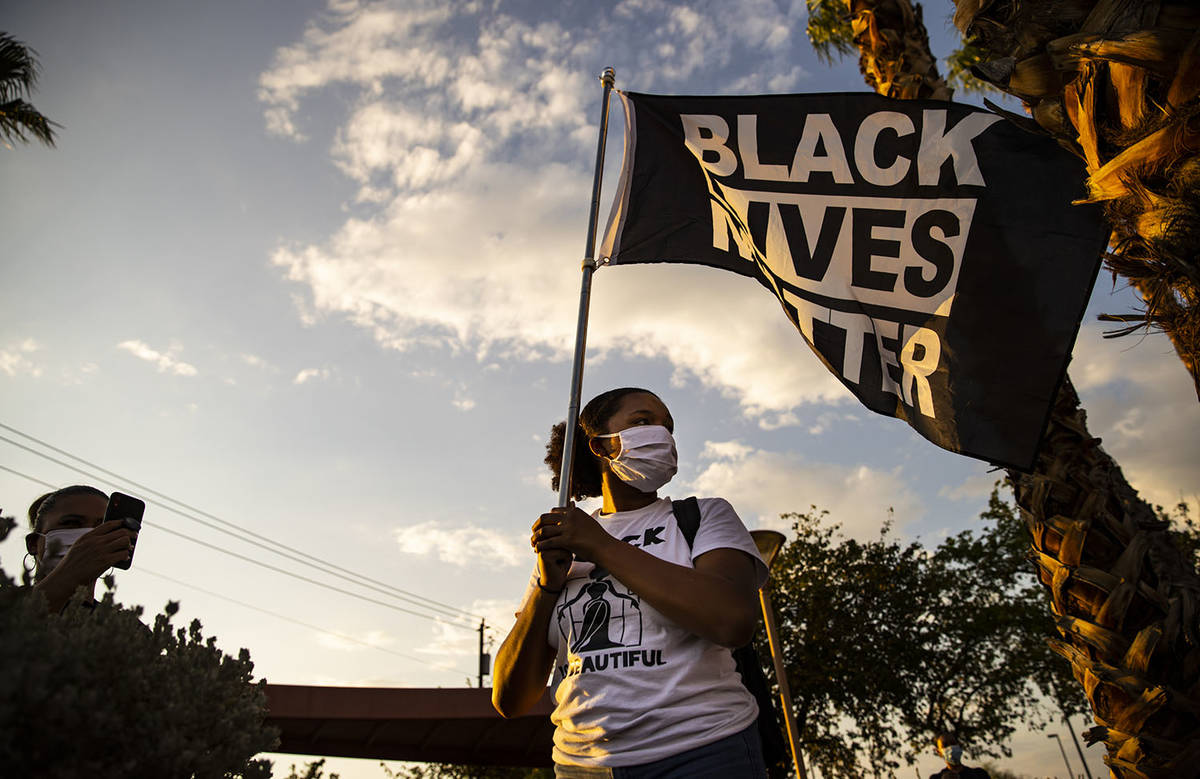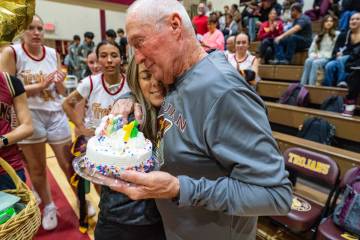Tom Rysinski: Sports, social movements have long history together
Perhaps you have heard the phrase, “Shut up and dribble” aimed at NBA players who refused to play last week in protest of police brutality and systemic racism after the shooting of Jacob Blake, but there is nothing new about mixing sports and movements for social justice.
For those old enough to remember — or old enough to have read about it forever, as I was only 2 at the time — it was Oct. 16, 1968 when gold medalist Tommie Smith and bronze medalist John Carlos of the United States bowed their heads and raised gloved fists while on the medal stand during the playing of “The Star-Spangled Banner” after the 200 meters at the Mexico City Olympics.
Smith, Carlos and Australia’s silver medalist, Peter Norman, wore badges representing the Olympic Project for Human Rights on the stand; indeed, Norman became a friend to the two Americans and a pariah in his home country, so much so that the Australian House of Representatives passed an official motion of apology in 2012 to Norman for his treatment after the Games. Even today, his 1968 Olympic time of 20.06 seconds is a national record.
By the time of the apology, Norman was dead, and Smith and Carlos were pallbearers at his funeral in 2006. And no, Norman was not black.
The gesture is often considered to be a “Black Power” pose, but Smith said it was a simple “human rights” move, noting the OPHR badges the medalists wore on the podium. The OPHR was founded by well-known sociologist Harry Edwards, who had urged African-American athletes to boycott those Olympics.
At those same Olympics, a more overtly political gesture was made by Czech gymnast Vera Caslavska, who bowed her head and turned away while the national anthem of the Soviet Union was played during medal ceremonies. This was back in the Iron Curtain days, and 1968 was the year of the Prague Spring, a movement toward greater freedoms in Czechoslovakia.
The Soviet Union invaded the country to end the movement, claiming they were invited by the Czech government to help restore order. (The U.S. and U.S.S.R. often claimed to be “invited” when they wanted to keep things under control in their respective spheres of influence. Anyone miss the Cold War days?) Caslavska bowed her head to protest the invasion, and, when the Czech communists were put back in charge, she was denied the right to travel, work and attend sporting events.
Much like Norman, history was on Caslavska’s side. Following the Velvet Revolution, which brought an end to communist rule, she held several positions of honor in her home country, including a term as president of the Czech Olympic Committee.
History is a funny thing. It changes. It evolves. What leading historians said about the Civil War in the 1920s, for example, is not even close to what leading historians since the 1960s have said about it. (Thankfully.) The Civil War didn’t change. Research, expanded educational opportunities and evolving societal norms made how it is viewed change. The same thing happened with Smith and Carlos in this country and Caslavska in her country. An even better example is Muhammad Ali, who was vilified for refusing to serve in Vietnam but was beloved as a national hero long before he died.
Which brings us to the NBA’s temporary work stoppage after the Kenosha shooting (the first one) and similar actions in the NHL, MLB, WNBA and in tennis. When they first announced they weren’t going to play, it seemed like nothing more than an empty gesture, simple grandstanding. I’m cynical that way.
But then something happened. In talks between the players’ union and ownership, the league agreed to a plan “to promote social justice and civic engagement.” No matter what you think about their goals for social justice, there can be no argument against more civic engagement. We need that, from the most crowded urban neighborhoods to the quietest remote outposts.
One thing the league has committed to do is work with elections officials to convert NBA arenas into polling places. An arena will provide a safe in-person voting option for communities vulnerable to COVID-19, the league and the players’ union said in a statement, and arenas also will be used for voter registration and ballot receiving boards if the deadline to establish a polling place has passed.
Making it easier to vote should be a no-brainer in a nation that likes to call itself a democracy. But the fact is that voting has become more difficult in many places, and voter suppression — see Georgia, 2018 — is a very real threat, far more than the illusory threat of voter fraud. It shouldn’t take some millionaires in a COVID-free bubble talking to billionaires to make voting easier in major cities.
But it’s a start. A movement sparked with UNR’s own Colin Kaepernick quietly protesting on the sidelines during an NFL preseason game — and no, Black Lives Matter does not mean other lives don’t; the notion is that it is obvious other lives already mattered but, judging by what we’ve seen on the streets for quite some time, black lives haven’t — has evolved into something tangible.
And this is a good thing, especially in an era in which everything is politicized. No matter what is happening, somebody is going to try to capitalize on it for political gain. And when people who are protesting someone being shot in the back seven times by a cop hear a political “leader” become a cheerleader for a teenage thug who crossed a state line with a gun looking for trouble in the same town and shot three people, killing two, do you really have to ask why there’s a movement in the first place?
But it’s one thing for people in Kenosha, Wisconsin, or Minneapolis or anywhere else to protest. (It’s quite another for agitators, on the left or the right, to hijack protests and turn them into riots, but that’s not for the sports page.) It’s quite another for NBA players to do something as a form of protest.
But sometimes they still hear “shut up and dribble.” But think about it this way. If your neighbor gets involved in a political cause, does anyone say, “Shut up and drive your truck,” or “Shut up and stock those shelves” or whatever? Nope.
Athletes are among the most visible people around. Whether you like it or not, they can have an impact, and they certainly have a platform.
Now, if after this NBA season is over, the players go back to their hometowns, or their teams’ home cities, and help with voter registration drives and do what they can to ensure a proper voting environment, that would show us something.
It remains to be seen if we’re entering a new era of civic engagement and voter participation or a new era of repressed voting and repressed expression. That’s another story not for the sports page. But if professional athletes had a hand in things moving in the former direction, historians will look back on this period someday with a profoundly different view than many people have of it now.
And someday people will be stunned that anyone ever suggested that they “shut up and dribble.”

















